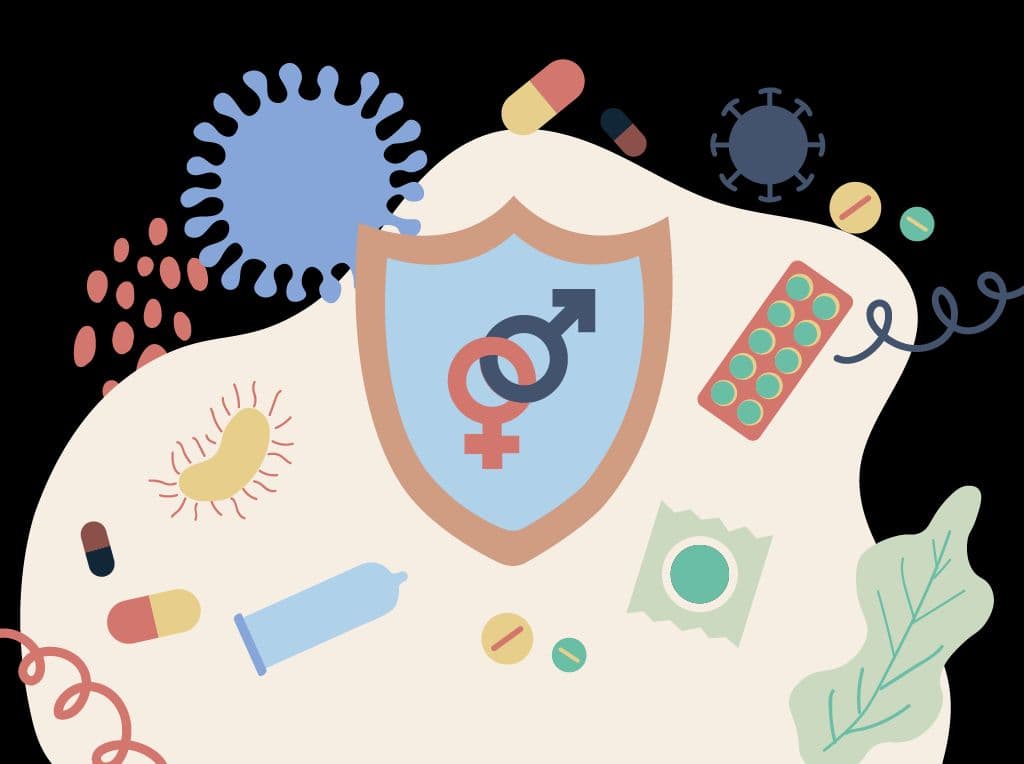Sexually transmitted infections (STIs) are infections that are passed from one person to another through unprotected sexual contact. The contact is sometimes vaginal, oral, and anal sex. But sometimes, they'll spread through other intimate physical contacts. This can be because some STIs, like herpes and HPV, spread through skin-to-skin contact.
Why STI testing?
A lot of times, STIs don't project any symptoms or have very non-specific symptoms that are not easily noticeable. Certain signs and symptoms of STIs are often the same as fungal infections - only a test will help you determine this and receive proper treatment. The stigma around STIs also discourages many people from getting tested because of a delay in treatment. If left untreated, STIs can cause severe health problems, including cancer and infertility.
How often does one have to get tested?
All sexually active people should get tested annually. More frequent testing is suggested depending on individual risk behaviour and looking at the prevalence of STIs in terms of demography.
It is best to get tested if
● You're sexually active (have engaged in oral/anal/vaginal sex or genital touching)
● You're entering a brand new relationship or have recently switched partners
● You're sharing or have previously shared needles or other forms of injection equipment as it is one of the common causes of STI
● You've got common symptoms of an STI
● You have been sexually active in the past and never been tested
● Trigger Warning - If you have been sexually assaulted
Testing can help you prevent infertility in the future. This also prevents you from passing on the infection to others.
What do the tests involve?
Most places let you choose a particular test that you deem relevant. However, this may not be the best way to understand your STI status, as you may miss out on some crucial tests. It is ideal to first consult a doctor, understand your risk level and choose a test accordingly. At Proactive For Her we designed three panels based on risk levels that one can choose from depending on their sexual history and symptoms.

What are the samples collected?
Sample collection for STI testing is extremely simple. We require only a blood sample and urine samples, and these samples can be collected at any time of your choice. If feasible, opt for home sample collection to further simplify the process.
When to get tested after suspected exposure?
After suspected exposure, get tested within 2-3 days. Tests may be repeated after 4-6 weeks to cover all STIs. It is highly recommended that you do not wait for any symptoms to surface to get tested. If you have participated in any sexual activity in the past or had unprotected sex - there is no better time to get tested than now.
How long does it take for an STI to show up?
The waiting period differs for every STI. Please check the following chart for more information.

What happens if you test positive?
If someone tests positive, they're directed to a venereal disease expert for treatment. The key is to catch it early through regular testing and ensure your partner(s) get tested as well. All STIs are manageable. Click here to know more about our STI Testing.
Disclaimer - This information is educational and should not be construed as medical advice. Please consult your doctor before making any dietary changes or adding supplements.
Proactive For Her is a digital clinic for women, offering accessible, personalised, and confidential healthcare solutions. We offer out-patient care, diagnostic services and programs for various health concerns of Indian women, across their lifetime - from puberty to pregnancy to menopause.

